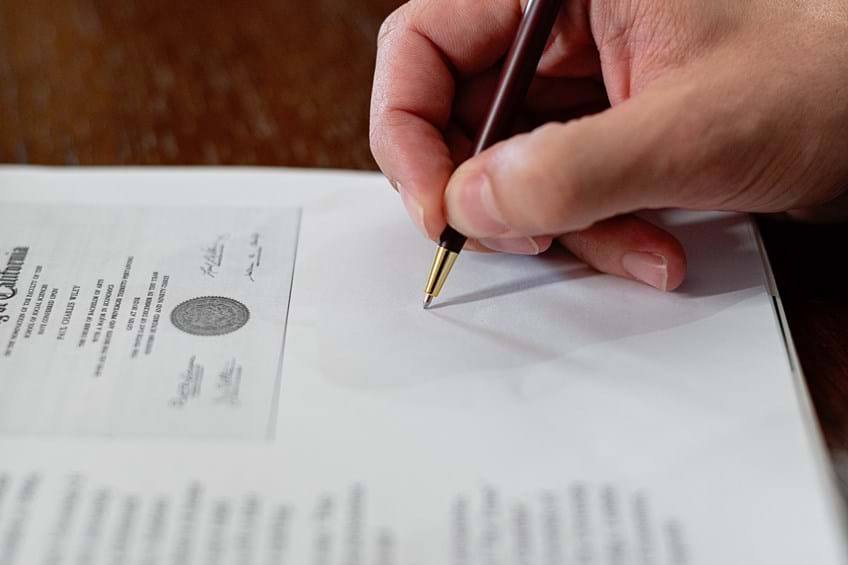Grounds for Challenging a Will
25th July 2016
Grounds for Challenging a Will
Introduction
One of the advantages of making a Will is ensuring that the maker’s (“the Testator”) loved ones/family are provided for and to avoid family squabbles. Notwithstanding this, the provisions in a Will can be challenged or the contents contested by relatives or interested parties because for example they feel that it does not reflect the wishes of the Testator or that they believe that they have not got their fair share. It appears (sadly) that the number of challenges to wills is on the increase and that there are a significant number of grounds upon which someone can challenge a Will.
Grounds for Challenging a Will
- Lack of Capacity
For a valid Will to be made, the Testator must be of sound mind. The Testator should:-
- have understood that they are making a Will and the effects of that Will;
- know the nature and value of their estate;
- understand the consequences of including and excluding certain people under the Will;
- not be suffering from any “disorder of the mind” which may influence their views.
For example it is common to challenge wills on the grounds of lack of capacity if the Testator suffered from a disease like Alzheimer’s or Dementia.
- Not properly executed
For a valid Will to be made it must meet all the following requirements:-
- it must be in writing, signed by the Testator or somebody in their presence, who is being directed to do that by the Testator;
- it must appear that the Testator intended by their signature to give effect to the Will;
- the Testator’s signature must be made or acknowledged in the presence of at least two witnesses, present at the same time; and
- each witness must either attest and sign the Will or acknowledge the signature in the presence of the Testator, but not necessarily in the presence of any other witness.
There is a legal presumption that a will has been validly executed unless there is evidence to the contrary of either one or more of (a) to (d) above.
- Undue influence
If the Testator has been coerced into making a Will on particular terms, then it may be invalid. The Testator’s freewill must have been overcome by someone else. If the Testator was elderly or vulnerable then this may provide more scope for arguing about the validity of the Will upon the grounds of undue influence.
- Fraudulent or Forged Wills
For example someone may forge the Testator’s signature on a document, purporting to leave everything to that person.
- Lack of Knowledge and Approval
A Testator must have knowledge of and approval of the contents of the Will. For example if a person helped prepare a Will and included a substantial gift to himself, then if the Testator is not aware of that then the Will could be contested.
- The Will makes no or insufficient provision for a family member/dependent
Certain classes of people, usually close family members, may be able to challenge a Will if it does not make reasonable financial provision for them. For example if a spouse is left with little or nothing from a Will but the Will includes say a large gift to a Charity, then a spouse might argue that he or she has not been left enough money from the estate to live off.
- The Testator made promises
A claim may arise if the Testator promised someone that they would inherit when the Testator died and that person acted upon this and to his detriment. For example if that party worked for the Testator without payment or carried out significant work to the Testator’s property.
- Rectification
A Will may be rectified when it fails to carry out the Testator’s intentions either because of a clerical error or because of a failure on the part of the person preparing the Will to understand the Testator’s instructions. A party can apply to rectify the Will and/or alternatively make a claim in negligence against the solicitor who prepared it.
- Another Will found
Each successive new Will normally cancels the previous Will automatically, but often people forget where the last Will is kept so that a “wrong” last Will may be found initially. Subsequently when the correct last will is found, this can give grounds obviously for contesting the older Will.
- Will invalidated
Sometimes certain events invalid a Will, e.g. divorce. Foreign Wills can often cancel a UK Will and vice versa.
- Will destroyed, could it still be valid?
Sometimes a Will can be destroyed, but this does not necessarily mean that it is invalidated. There have been occasions where a will has been unintentionally destroyed or thrown away, but remains valid as there was never an intention by the Testator to revoke. In such circumstances it is possible to prove the Will by way of a copy.
So how do I contest a Will?
If you want advice about contesting a Will, or defending a claim that has been made against a Will, then please contact Daven Naghen on 01775 722261 or email daven.naghen@maplessolicitors.com or visit our offices or arrange an appointment to see Dav at 23 New Road, Spalding, Lincolnshire, PE11 1DH
If you want advice in making your Will in order to reduce or eliminate the risk of such claims being made against your estate then please either contact one the Wills, Probate & Trusts Team:
Jane Mawer on 01775 722261 or email jane.mawer@maplessolicitors.com
Faye Blair on 01775 722261 or email faye.blair@maplessolicitors.com
Jamie Dobbs on 01775 722261 or email jamie.dobbs@maplessolicitors.com or visit our offices at 23 New Road Spalding Lincolnshire PE11 1DH.



